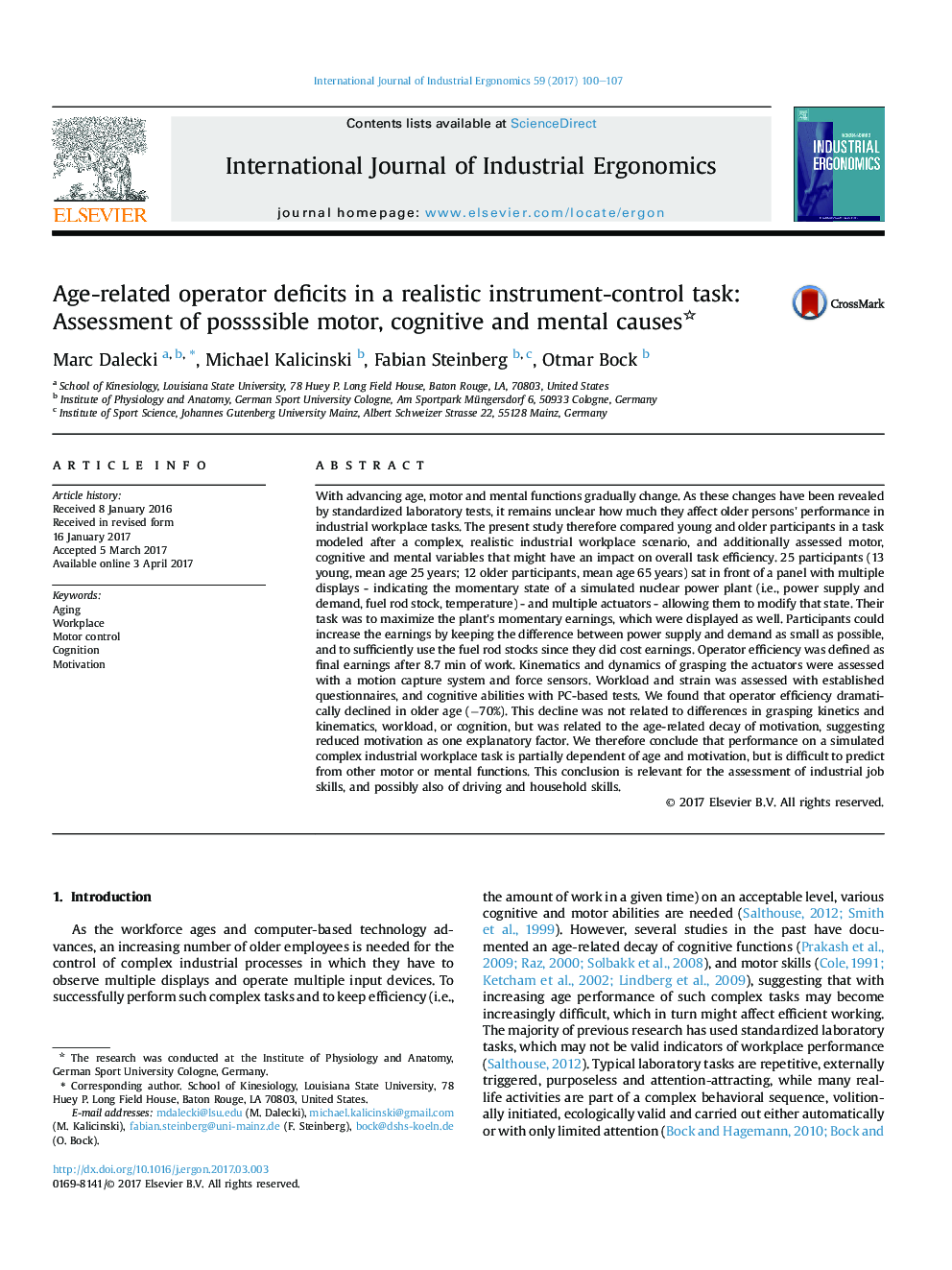| کد مقاله | کد نشریه | سال انتشار | مقاله انگلیسی | نسخه تمام متن |
|---|---|---|---|---|
| 5123697 | 1487416 | 2017 | 8 صفحه PDF | دانلود رایگان |
- The present study explored age-related deficits during an instrument-control task in a realistic industrial workplace scenario.
- We also assessed different motor and mental variables.
- Operator efficiency dramatically declined in older age (â70%).
- This decline was partially depended of age and motivation, but is difficult to predict from other motor or mental functions.
With advancing age, motor and mental functions gradually change. As these changes have been revealed by standardized laboratory tests, it remains unclear how much they affect older persons' performance in industrial workplace tasks. The present study therefore compared young and older participants in a task modeled after a complex, realistic industrial workplace scenario, and additionally assessed motor, cognitive and mental variables that might have an impact on overall task efficiency. 25 participants (13 young, mean age 25 years; 12 older participants, mean age 65 years) sat in front of a panel with multiple displays - indicating the momentary state of a simulated nuclear power plant (i.e., power supply and demand, fuel rod stock, temperature) - and multiple actuators - allowing them to modify that state. Their task was to maximize the plant's momentary earnings, which were displayed as well. Participants could increase the earnings by keeping the difference between power supply and demand as small as possible, and to sufficiently use the fuel rod stocks since they did cost earnings. Operator efficiency was defined as final earnings after 8.7Â min of work. Kinematics and dynamics of grasping the actuators were assessed with a motion capture system and force sensors. Workload and strain was assessed with established questionnaires, and cognitive abilities with PC-based tests. We found that operator efficiency dramatically declined in older age (â70%). This decline was not related to differences in grasping kinetics and kinematics, workload, or cognition, but was related to the age-related decay of motivation, suggesting reduced motivation as one explanatory factor. We therefore conclude that performance on a simulated complex industrial workplace task is partially dependent of age and motivation, but is difficult to predict from other motor or mental functions. This conclusion is relevant for the assessment of industrial job skills, and possibly also of driving and household skills.
Journal: International Journal of Industrial Ergonomics - Volume 59, May 2017, Pages 100-107
